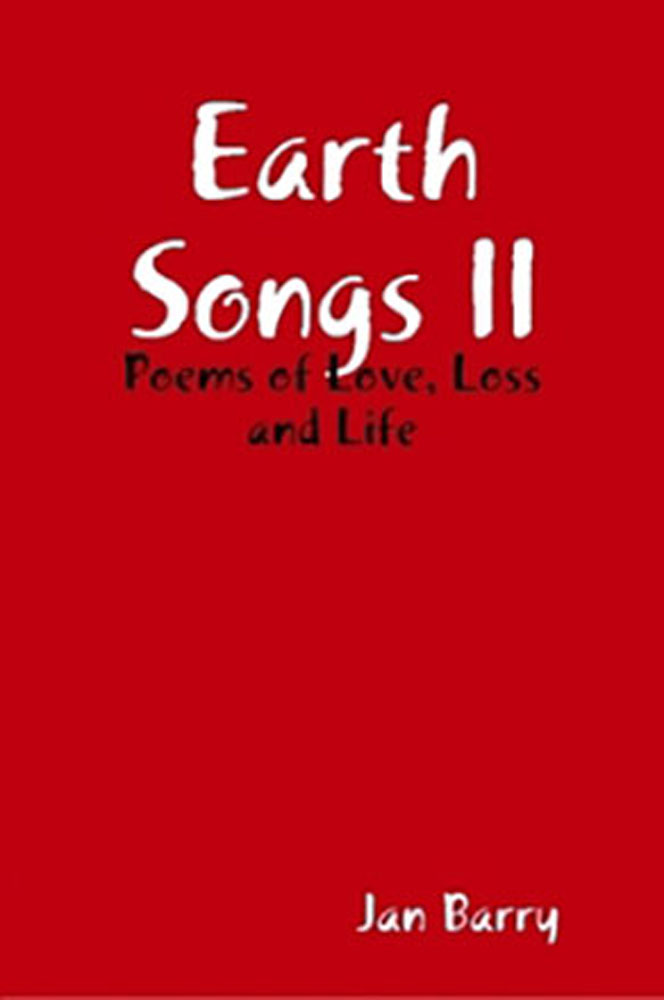 Download PDF of this full issue: v49n1.pdf (28 MB)
Download PDF of this full issue: v49n1.pdf (28 MB)From Vietnam Veterans Against the War, http://www.vvaw.org/veteran/article/?id=3725
 Download PDF of this full issue: v49n1.pdf (28 MB) Download PDF of this full issue: v49n1.pdf (28 MB) |
Earth Songs II: Poems of Love, Loss and Life
by Jan Barry
(lulu.com, 2018)
If Vietnam Veterans Against the War were reconstituted as Vietnam Veteran Poets Against the War, Jan Barry would be its hereditary king, prime minister by acclamation, and president for life. Just consider the titles of the anthologies he has edited or co-edited: Winning Hearts and Minds, Demilitarized Zones, Peace Is Our Profession, and most recently Sound Off. His own collections include War Baby, Veterans Day, Earth Songs, and Life After War & Other Poems. And now comes Earth Songs II, a compilation of new work written in the past fifteen years.

|
I readily admit that I am not exactly an impartial critic. I've known Barry for 47 years, and he has been one of the major influences in my life. We first met when he was editing Winning Hearts and Minds with Larry Rottmann and Basil Paquet back in 1972. I was trying, without much success, to cope with the flood of emotions coursing through me in the wake of my encounter with the American War in Vietnam. A few years later, he and I co-edited Demilitarized Zones together, and it was during those years—1975 and 1976—that Barry showed me how to direct my rage and confusion into constructive channels through poetry and literature.
He believed then in the power of the word, and all these years later he still does. His refusal to give in to despair, his fundamental belief in the goodness of humanity, and his willingness to keep moving forward in spite of the obstacles life throws in his path are nothing short of astounding. And he has once again demonstrated all these qualities in the 105 poems collected in this new volume. The poems themselves range widely, touching on issues of war and peace, the debilitating impact of combat on the human spirit, aging parents, the devastating loss of his wife of decades, trying to date again, his own advancing age, and the rejuvenating power of nature.
Think about this description of our current hyper-militarized culture the next time you're watching an NFL game, and they cover the whole field with an American flag while the 82nd Airborne Division chorus sings the national anthem:
Our flag flapping, sword saluting
Sworn to secrecy
Stiff upper lip, suck it up
He-man, iron man military mindset
("Singing Out")
Or these last few stanzas from "Dummies Guide to Chemical Warfare:"
Spewing arsenals of chemical weapons—
Chlorine, mustard gas, phosgene, sarin,
A-bombs, H-bombs, depleted uranium
'Til we run out of cutesy mots
And slam into S for suicide—
And that's all she wrote.
Some of the most heartbreaking poems deal with the loss of his wife, Paula. Just when you think he's going to be okay, the poem "Bad Day Blues" ending:
Having a bad day—
Then a cat meows,
Wanting a companion—
Ah, come here
The very next poem, "Death Is Never Done" concludes:
The cat disappeared
One night—
Like your embrace,
Your face, your light.
Still, that refusal to give in or give up is captured in "Alone":
Learning to be alone,
Sleep alone, eat alone,
Dream alone.
On my own.
You're surely gone,
Can't help me carry on.
Have to find
Some other sign.
Some of the most poignant poems are about his parents, who lived long lives, were married seventy years, and died within a year of each other. Other poems explore an uncle killed in a dive bomber in the World War II Pacific ("the tail gunner jumping / from the rear seat engulfed in fire"), the encroachment of "civilization" on the natural world ("the silence / Of this forty mile lake is shattered / By shore to shore boats, / Door to door cottages, / Year round houses"), and the refusal of nature to give in to that encroachment:
Summer Wildflowers
Flaming fields of purple loose strife
Flicker along country highways
Beside gleaming epaulets of golden rod
Twirling in stride with fluttering
Scars of Queen Anne's lace
And shimmering sky blue
Clusters of chicory.
Few poets have so consistently insisted that peace is possible and poetry matters. In "Gold Star Grandson," Barry sums up his life's work in a single stanza:
So I went off to war
And when I came home
Transformed silences
That replaced the missing
Into poetry
And sought to tell
Stories of fallen sons
Whose voices were stilled.
The quiet strength of Barry's voice and the simple decency of his vision are blessings to anyone who cares about the world we live in and the future we will leave to coming generations. Here is "Memorial Highways" in its entirety:
There's a memorial highway
For veterans of every major war—
Can you imagine
A memorial highway
For peace treaties—
Peace served
And died, too.
You can order Earth Songs II at www.janbarry.net.
Bill Ehrhart is a Marine veteran of the American war in Vietnam and a life member of VVAW.